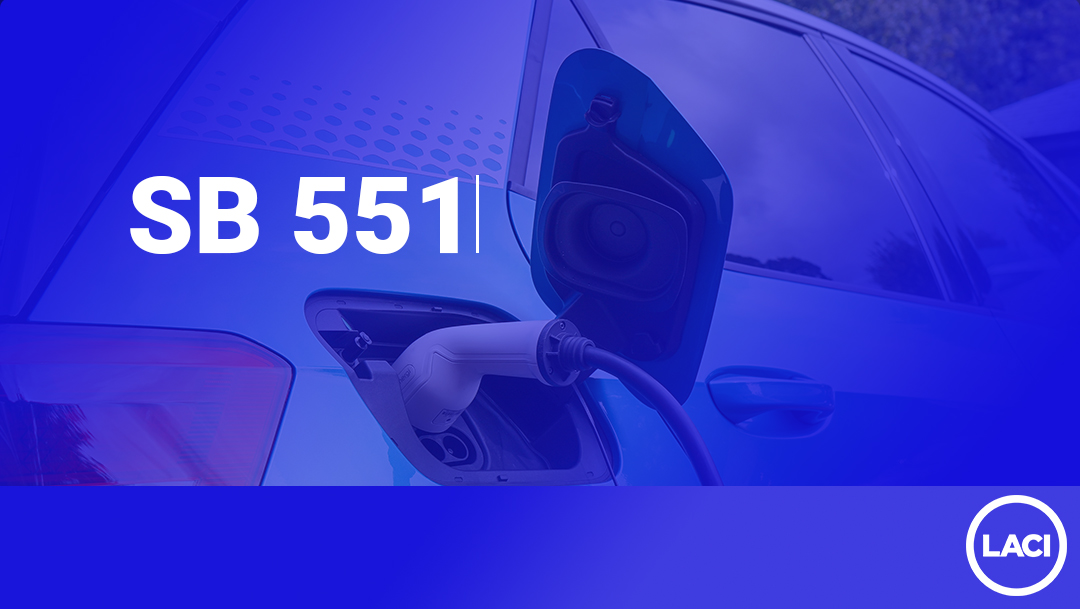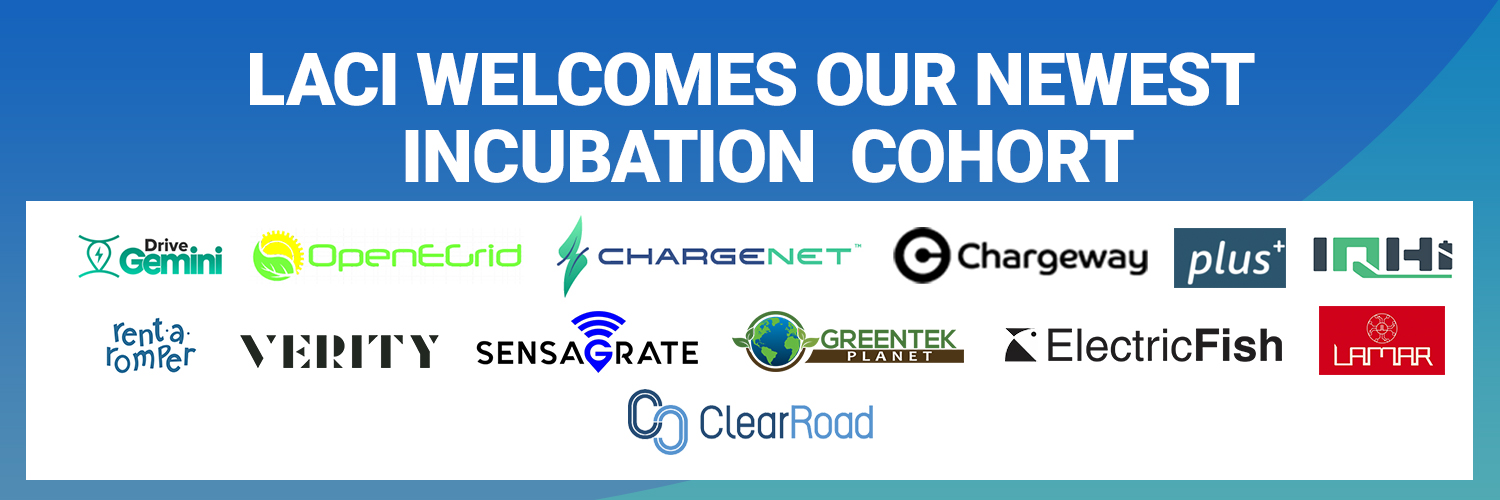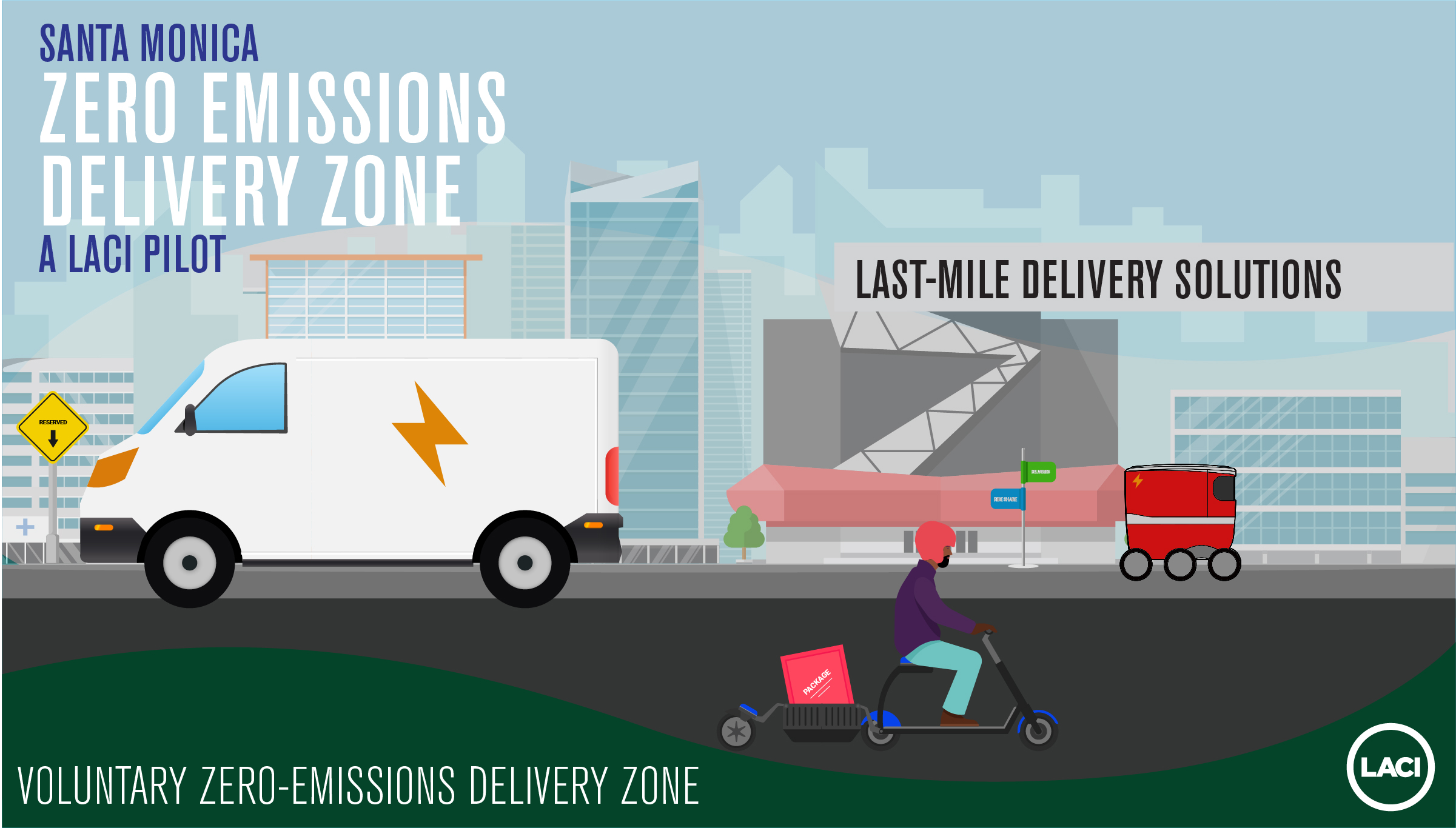
RELEASE: LACI Launches First-In-Nation Zero Emissions Delivery Zone with City of Santa Monica
This week Los Angeles Cleantech Incubator (LACI) and the City of Santa Monica have officially launched and deployed the first-in-the-nation voluntary Zero Emissions Delivery Zone (ZE Delivery Zone) in a one-square mile area of the city partnering with tech and delivery companies and community organizations. Here is what everyone involved is saying:
LACI CEO and Chair of the Transportation Electrification Partnership (TEP) Matt Petersen
“With the explosion of last mile delivery of goods and food during the pandemic, the zero-emissions delivery zone in Santa Monica will help us both advance policy and technology solutions needed to reduce air & climate pollution, noise, and congestion while creating a blueprint for other cities to follow. In addition to helping advance the bold goals of the Transportation Electrification Partnership, the pilot will also help unlock innovation from startup entrepreneurs, strengthen local small businesses, and grow the green workforce.” – Matt Petersen, CEO of LACI and Chair of TEP
ELECTED OFFICIALS
Santa Monica Mayor Sue Himmelrich
“To reduce and ultimately eliminate our carbon emissions, we need to look at all aspects of the transportation sector. This pilot with LACI will use smaller and cleaner technologies to deliver goods instead of the large diesel-fueled trucks we’re used to seeing on our streets. Beyond reducing carbon and congestion, the added bonus is that restaurants can keep higher margins of sales on delivered food items. This is coming at a critical moment in our recovery and we look forward to new insights on zero-emissions delivery and the possibilities beyond our one square mile test zone.” — Santa Monica Mayor Sue Himmelrich
Los Angeles County Supervisor Sheila Kuehl
“The Zero Emissions Delivery Zone advances the vision laid out by the county’s Climate Action Plan to take actions that reduce air pollution, improve community health, and create sustainable jobs. I am hopeful that this model can be applied by cities across the county in ways that move our entire region toward a greener and more sustainable future.” — Supervisor Sheila Kuehl
California State Senator Ben Allen
“With this pilot, Downtown Santa Monica and its surrounding communities and businesses are showing that city streets can be cleaner, safer, more innovative. During the pandemic, package deliveries, e-commerce, and food deliveries have reached an all-time high. This program serves as a sustainable solution that lessens the impact of pollution from vehicles, while also providing support for our small businesses by helping them reach their customers. I’m proud to see these home-grown creative solutions from LACI and the City of Santa Monica.” — Senator Ben Allen (D-Santa Monica)
California State Assemblymember Richard Bloom
“The Zero Emission Delivery Zone is an exciting initiative that will solidify Santa Monica as a leader in innovation on the world stage. This pilot will serve as a model for other cities to adopt to reduce greenhouse gas emissions and improve air quality for the health of their communities while also providing economic opportunity to small businesses.” — Assemblymember Richard Bloom (D-Santa Monica)
ADVISORY + TEP PARTNERS
Nissan North America
“As Nissan accelerates our journey to carbon neutrality, we are proud to build on our partnership with LACI to support Zero Emissions Delivery Zone pilots. This pilot comes at a critical time as delivery service continues to increase. With the Zero Emissions Delivery Zone we will support local businesses and further our shared goal of reducing air pollution, GHG emissions, and improving safety.” — Rachel Nguyen, Director of Nissan Future Lab
ROUSH Clean Tech
“We at ROUSH Clean Tech are committed to advanced transportation solutions- as evidenced by our new BEV truck deployments and decades of experience in alternative fuel vehicles. The launch of the Zero Emissions Delivery Zone will provide the opportunity for our technologies to reduce emissions in the goods delivery sector- and then scale these solutions in additional communities.” — Chelsea Jenkins, VP of Government and Industry Relations.
Southern California Edison
“We are pleased to have supported LACI in developing and launching the Zero Emissions Delivery Zone pilot in Santa Monica. Innovative projects like ZEDZ will help bring California and our local communities closer to the 75% of electric vehicles that SCE believes need to be on the road by 2045 to achieve the state’s climate goals.” — Michael Backstrom, Managing Director of Energy and Environmental Policy
Urban Movement Labs
“Transportation technologies have the potential to address some of our region’s most pressing challenges, including sustainability and climate change, particularly when designed with community needs at the forefront” said Lilly Shoup, interim Executive Director of Urban Movement Labs. “UML is excited to work with LACI and the City of Santa Monica in developing new partnership approaches and identify opportunities to replicate elements of the zero-emissions delivery zone across the region.” — Lilly Shoup, interim Executive Director of Urban Movement Labs
COMMUNITY PARTNERS
Ocean Park Association
“As deliveries continue to grow, the Zero Emissions Delivery Zone project in Ocean Park will bring innovation right to residents’ doors. Local deliveries will be faster and safer, and without the truck noise and fumes we’ve come to hate. That’s why OPA is so pleased to be a community partner to this exciting program. From Amazon to a snack from a local restaurant, more and more deliveries are coming our way. OPA fully supports the Zero Emissions Delivery Zone project as an innovative partnership to keep our air cleaner and our streets safer.”
Climate Action Santa Monica (CASM)
“Climate Action Santa Monica is honored that our city was chosen as the pilot location for LACI’s ZEDZ project. This innovative program meshes perfectly with our city’s goals for carbon reduction, improved mobility and economic vitalization. All of these are especially important during the Covid pandemic. We are eager to see the ZEDZ ramp up and become a model climate solution for other communities.”
Main Street Santa Monica
“Main Street is super excited to be a part of this forward-thinking pilot program. We’re confident it will provide our community with an advantage. Even better, it will serve as a blueprint for green delivery initiatives around the country moving forward.” — Hunter Hall, Executive Director
Downtown Santa Monica
“Santa Monica prides itself on being a sustainable and innovative city that spearheads and embraces initiatives that have positive impacts on the environment at home and around the world. Downtown Santa Monica, Inc. is thrilled to be working with the Los Angeles Cleantech Incubator to pilot their Zero Emissions Delivery Zone project in our community to help build a green network of delivery options for downtown businesses and residents, decrease congestion in the downtown core, and collect insights that we can share with other communities in our region.”
Santa Monica Spoke
“Santa Monica Spoke is truly excited to participate in this innovative pilot program that explores how zero emission and alternative delivery vehicles, like e-bikes, can help reduce congestion, GHG emissions and support local businesses as we all adjust to “a new normal.” Exploring new models for mobility with merchants, community and neighborhood organizations in support of a more environmentally and economically resilient Santa Monica, we are looking forward to safer, more equitable use of public space and resources that benefit everyone.” — Cynthia Rose, Director
DELIVERY PARTNERS
Guayaki
“Guayaki Yerba Mate is excited to participate in the Santa Monica Zero Emission Zone by providing electric vehicle delivery of Guayakí products to Santa Monica. Collaboration between NGOs like LACI and brands like Guayakí Yerba Mate are critical for achieving a zero emission future.” — Gretchen Grani, Regeneration & Sustainability Lead
FoodCycle LA
“FoodCycle is a Los Angeles based nonprofit dedicated to feeding people – not landfills and to addressing the environmental impact of food waste. An estimated 40% of food in the US is wasted – food thrown into landfills creates methane gas and contributes to climate change. FoodCycle is leveraging technology to reduce the environmental impact of recovering food. We partnered with Maxwell to incorporate sustainable vehicles that are produced by refurbishing gas or diesel vans and converting them into electric vans. We’re dedicated to working collaboratively with other organizations looking for innovative solutions to environmental and social challenges and are proud to be part of this innovative program.”
Shopify
“We’re on a mission to reverse climate change which means we need to eliminate delivery emissions. We’re excited for the findings of the ZEDZ pilot and look forward to incorporating them into our sustainability work.” — Stacy Kauk, Director of Shopify’s Sustainability Fund
Alsco Uniforms
“Alsco Uniforms business model is laundering reusable uniforms and linen, so by nature we provide a sustainable service to the community. Adding electric fleet to deliver these products was a no brainer for us.” — Frank Lopez, General Manager Los Angeles branch
Axlehire
“AxleHire, a FedEx and UPS competitor for last-mile delivery services, is thrilled to be working with the city of Santa Monica in establishing a zero-emissions delivery zone. Santa Monica is one of many cities where AxleHire has leveraged its unique delivery methods and services to achieve net-neutral emissions. This latest success in Santa Monica proves AxleHire is well-positioned to help California pave the path to zero emissions by 2030.” — Daniel Sokolovsky, Founder
IKEA
“At IKEA, we believe in a zero-emission transportation future. The Santa Monica ZEDZ pilot program will offer an opportunity to showcase the demand for zero-emissions delivery, and serve as an example to other retailers and cities looking for a model to replicate. Groundbreaking solutions begin with a simple idea, and we are excited to showcase these solutions with this pilot program.” – Steve Moelk from the Ikea Group
REEF
“At REEF, our mission is to cultivate sustainable, livable neighborhoods by bringing the world to your block. With our footprint of NBHRD hubs and zero emissions delivery and logistics solutions, we’re committed to being a key piece of LACI’s vision of creating an inclusive green economy. We’re thrilled to be participating in Santa Monica’s groundbreaking Zero Emissions Zone.” –Kley Sippel, General Manager for Southern California
TECH PROVIDERS:
LACI COMPANIES
Automotus
“With cities around the world seeing a rise in delivery traffic, we’re incredibly excited to support this landmark effort to drive commercial adoption of electric vehicles right here in our hometown. We’re looking forward to working with an amazing cast of partners to build a playbook for incentivizing a move towards more sustainable vehicles.” — Jordan Justus, CEO
Maxwell Vehicles
“Maxwell Vehicles is incredibly excited to be a part of LACI’s zero-emissions delivery zone with incredible partner companies driving our eVans. Together, we’re making an impact with cost-effective, long-range, electric cargo vans on the streets of Santa Monica. Opportunities like this are essential to shifting the last-mile delivery boom and urban transportation paradigm to all electric.”
Freewire
“FreeWire is thrilled to offer our mobile charging solution as part of LACI’s Zero-Emission Delivery Zone project. LACI is rethinking the regional delivery model to reduce emissions, and we’re excited to integrate Mobi as a key provider of sustainable off-grid power. By employing a suite of innovative technologies, we hope this pilot will provide a template for cities to effectively transition towards a clean energy economy.” — Ethan Sprague, VP Sales & Marketing
Circuit
“Circuit applauds the Los Angeles Cleantech Incubator and the City of Santa Monica for their innovative thinking with the launch of the first Zero Emissions Delivery Zone in the US. We are excited to participate in the ZEDZ by providing electric last-mile parcel deliveries as an extension of our electric last-mile shuttle service in Santa Monica.”
OTHER PROVIDERS:
Fluid Truck
“We are excited for the opportunity to partner with the LACI program on this pilot project as we hope that it will serve as the blueprint for other cities around the country as they look to drive their sustainability goals.” — James Eberhard, CEO & Founder of Fluid Truck
Rollo
“Delivery of food and goods has never been more important, and the Santa Monica Zero Emissions Delivery Zone is a great place to showcase Rollo’s healthy neighborhood delivery. Rollo technology empowers delivery. We have developed a zero-emissions delivery vehicle that can be driven autonomously, controlled by a remote operator, and ridden by a human. These operating modes along with Rollo’s unique form factor are key elements that enable faster delivery and operation of a relationship-centric delivery service that sustains restaurants’ connection to their customers. We are looking to grow our great set of forward-thinking Santa Monica partners.” — Ryan McLean, Co-Founder & CEO
Coco
“Coco is thrilled to partner with LACI and the City of Santa Monica to bring our zero emission, low-cost delivery service to the ZEDZ pilot. With Coco, local restaurants and markets avoid the high fees, pollution, and traffic generated by traditional delivery services. Our deliveries are also contact-free, providing our customers, vehicle pilots, and partner businesses, a safer option during the pandemic. We believe the ZEDZ pilot will be a tremendous success and that other cities will be quick to follow!” — Zach Rash, CEO
Kiwibot
“Kiwibot is excited to join the ZEDZ pilot in Santa Monica. Our cute, cooler-sized kiwibots will accelerate the adoption of robotic delivery by creating an emotional link with Santa Monica locals. Our bots provide eco-friendly services for customer convenience. Amongst others, we have partnered with Shopify for order placement, and Blue Systems for operational data via MDS. Our primary mission is to support Santa Monica in reducing city emissions and developing a better infrastructure for the future.”
Motiv Power Systems
“Electrifying Alsco’s fleet is another important step in the fight to eliminate air pollution stemming from the combustion of fossil fuels. Motiv’s EPIC F-59 step vans are ideal for LACI’s Zero Emissions Delivery Zone (ZEDZ) to help drive clean transportation. We hope the learnings from this project can be utilized to scale efforts nationwide.” — Matt O’Leary, Chairman and CEO
Lightning eMotors
“Deploying commercial zero emission electric vehicles now is an investment that is critical for workforce development, provides outcome fleet data by flipping the history switch and has positive health impacts for our local communities today and our future generations. Lightning eMotors is proud to support LACI and Santa Monica in this groundbreaking pilot and provide the blueprint for future zero emission zones to follow.”
Tortoise
“Tortoise remote-controlled sidewalk delivery carts that can carry 100+ pounds of groceries, meal kits, parcels, and retail goods will be a perfect compliment to the Santa Monica ZEDZ program. Tortoise empowers any business, small or large, to offer their customers the magic of affordable zero-emissions same-day delivery. We couldn’t be more excited to work with the Santa Monica community to demonstrate how safe, friendly, and accessible remote-controlled sidewalk delivery can be!”
Blue Systems
“We are humbled and very excited to have been chosen to participate in this innovative project,” said Christophe Arnaud, Blue Systems CEO. “The mission of this project resonates with Blue Systems. Cutting edge zero emission vehicles and devices doing deliveries while being connected to our Mobility Manager Platform aligns with our mission of providing cities with smart mobility software solutions. In this case, it will allow LACI and Santa Monica to analyze the impact of electric mobility devices operating in a zero emissions delivery zone. It was hard to imagine even five years ago that robots would be making deliveries while City officials use a dashboard to visualize trips, analyze metrics and explore KPIs (including reductions in greenhouse gas emissions), and enact smart urban mobility policies based on the analysis. We are proud to provide our technology to LACI and the City of Santa Monica for this project.”
###
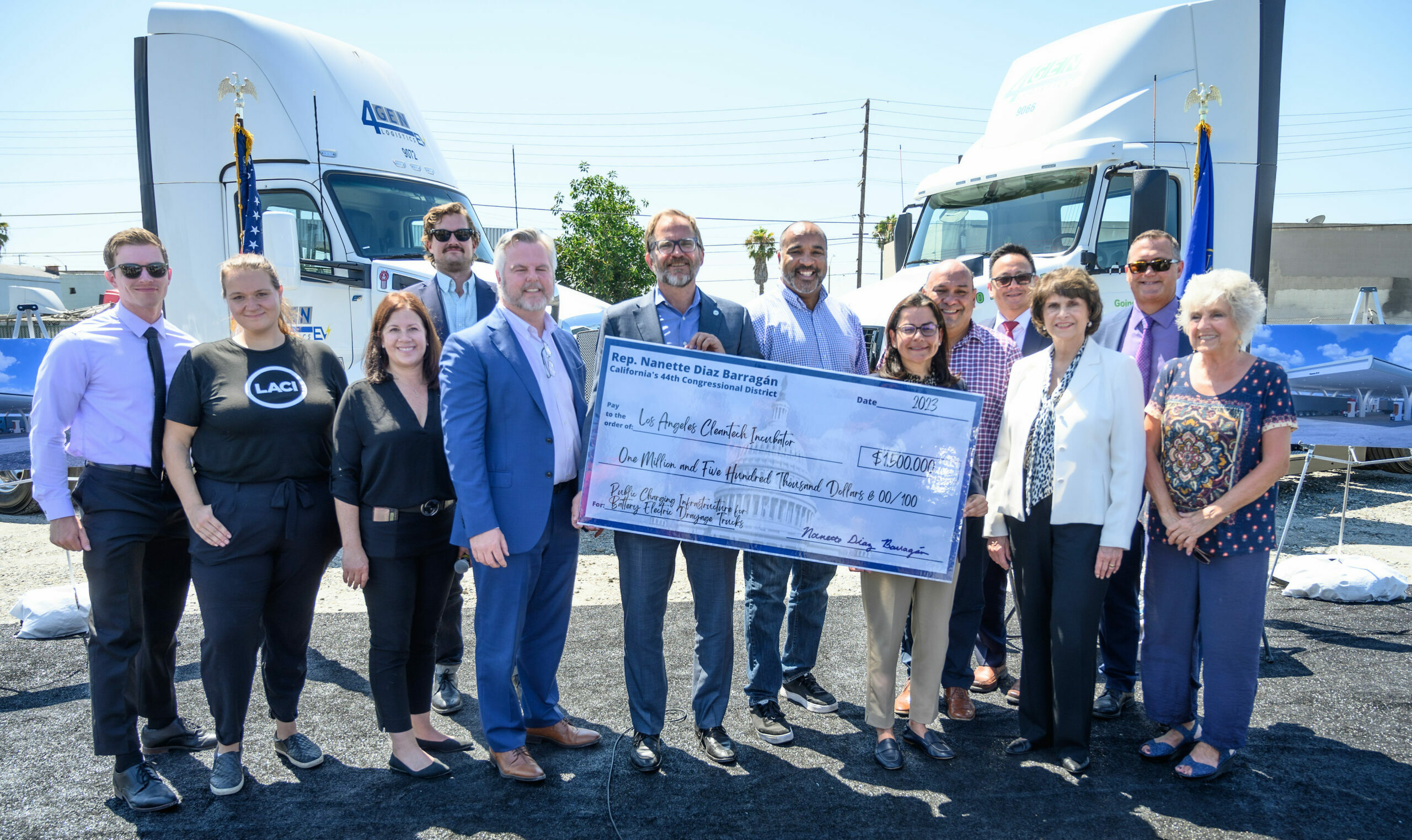



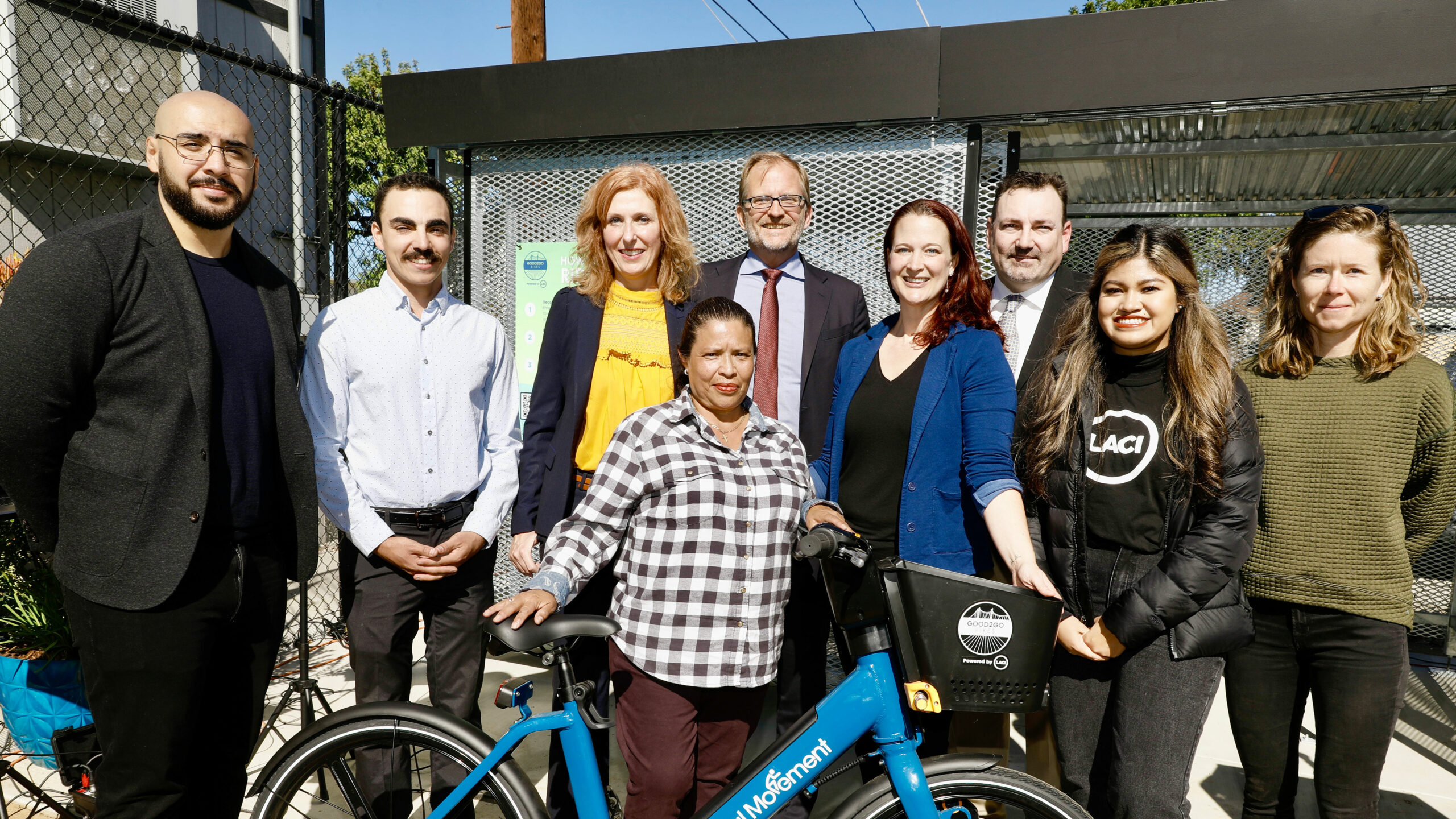

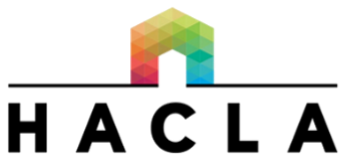


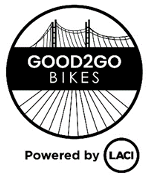
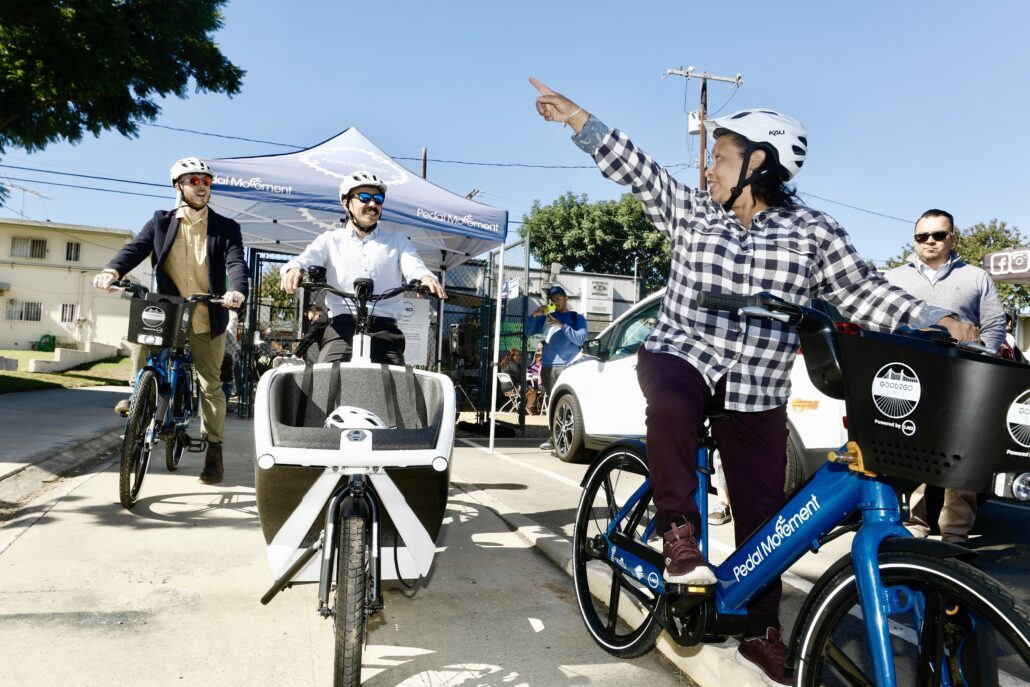
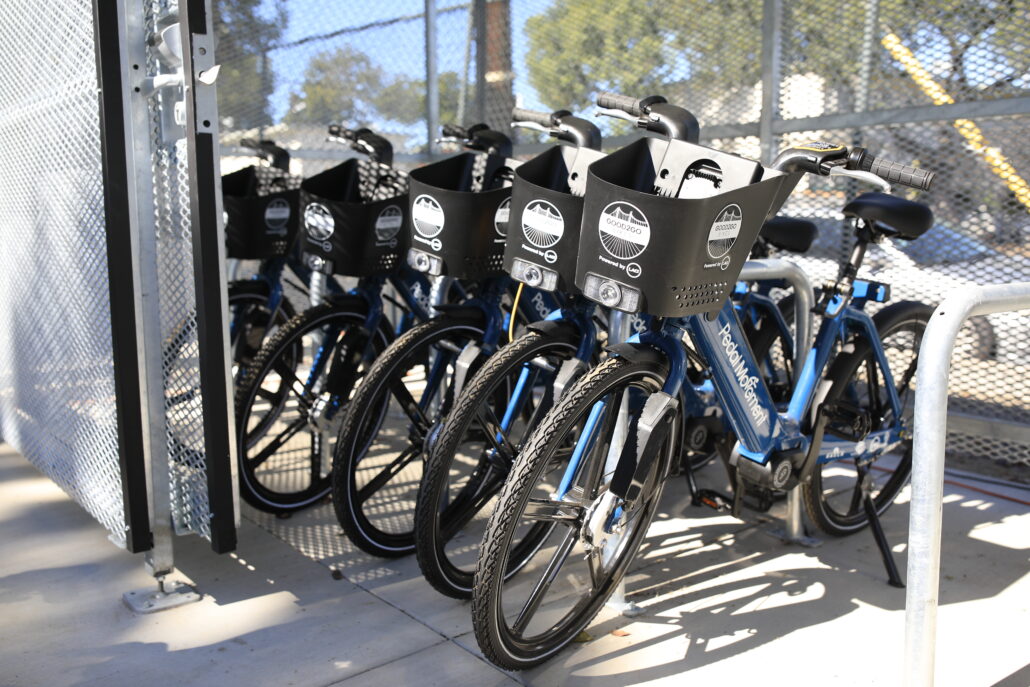
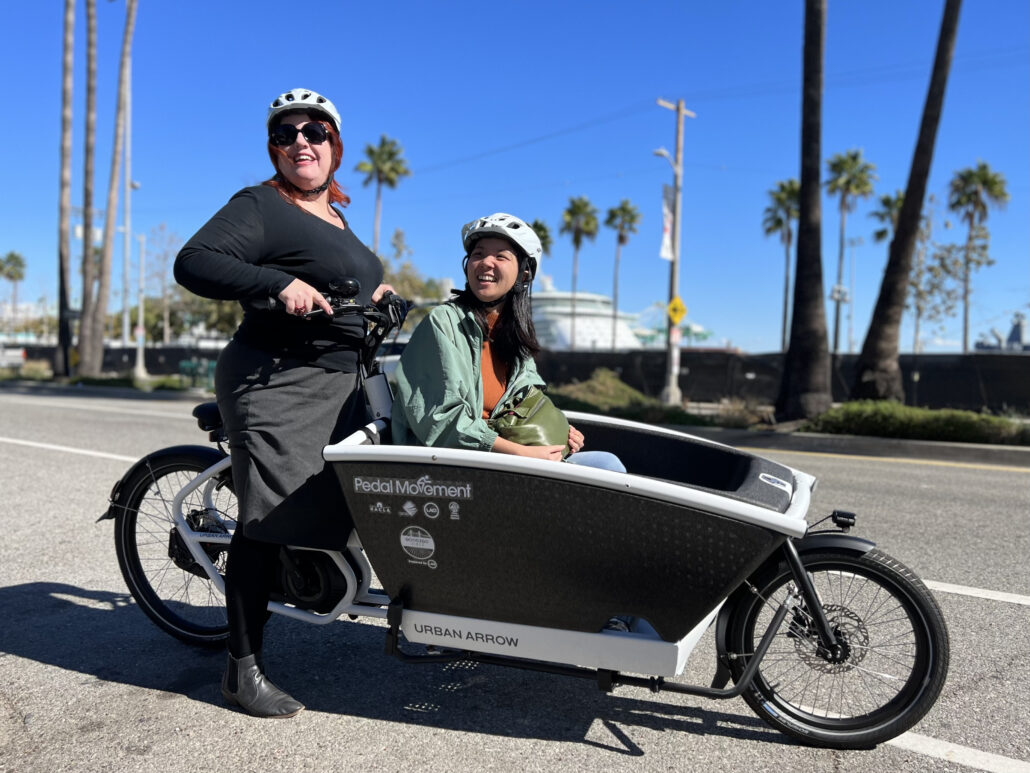
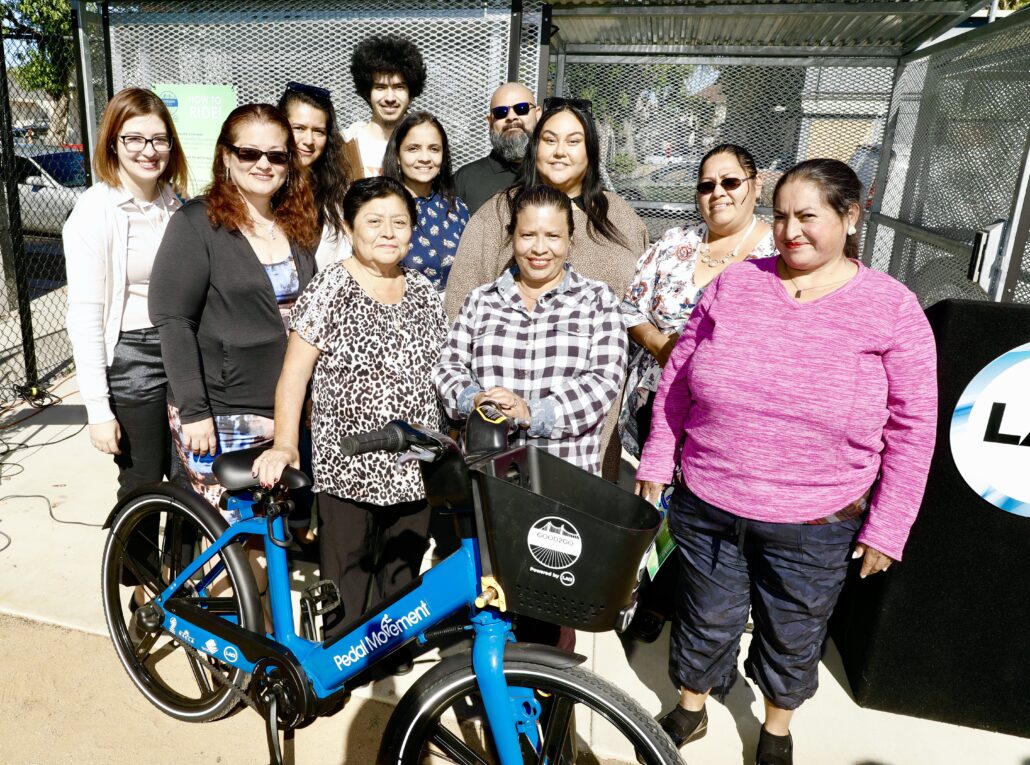
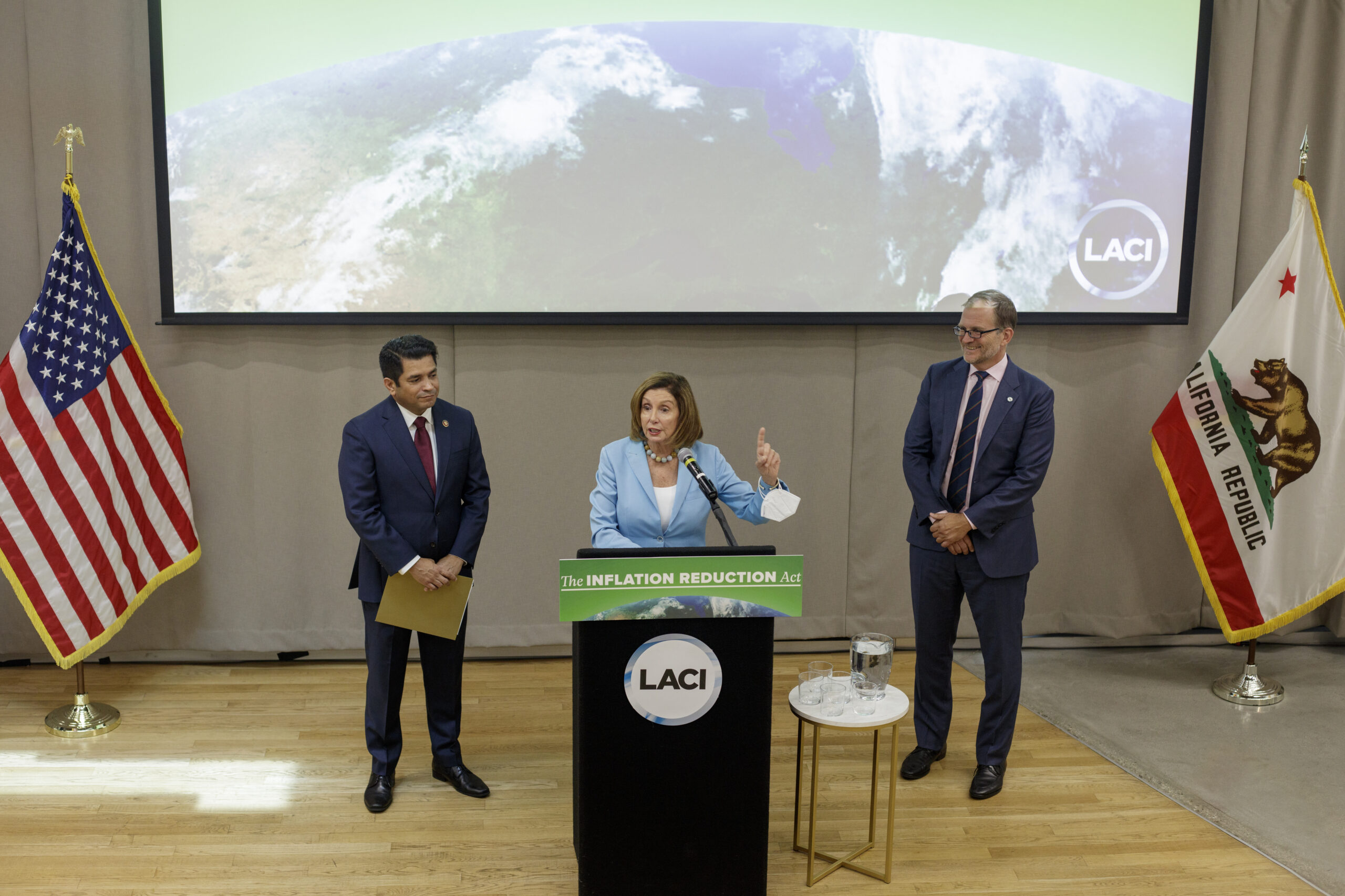

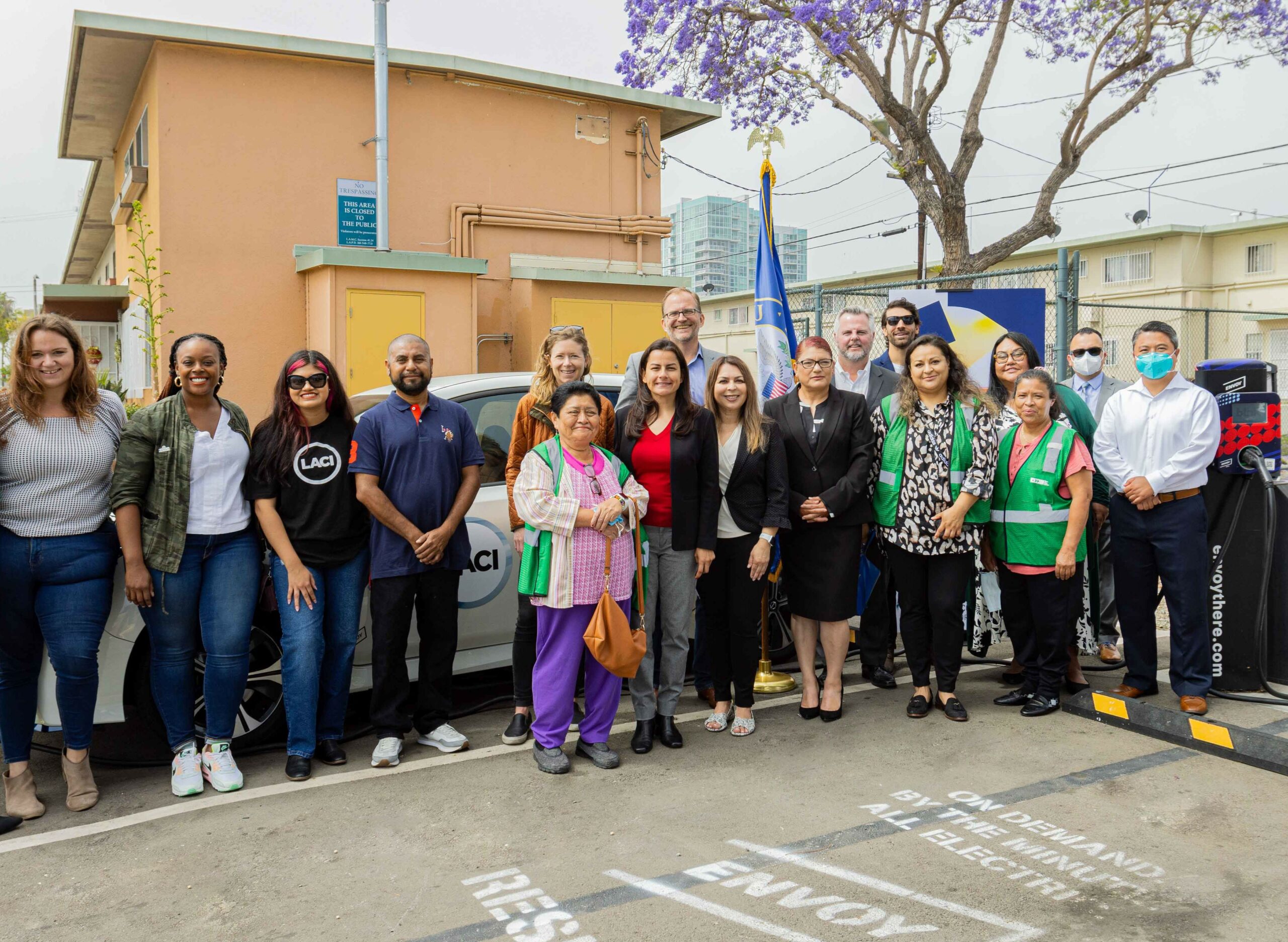


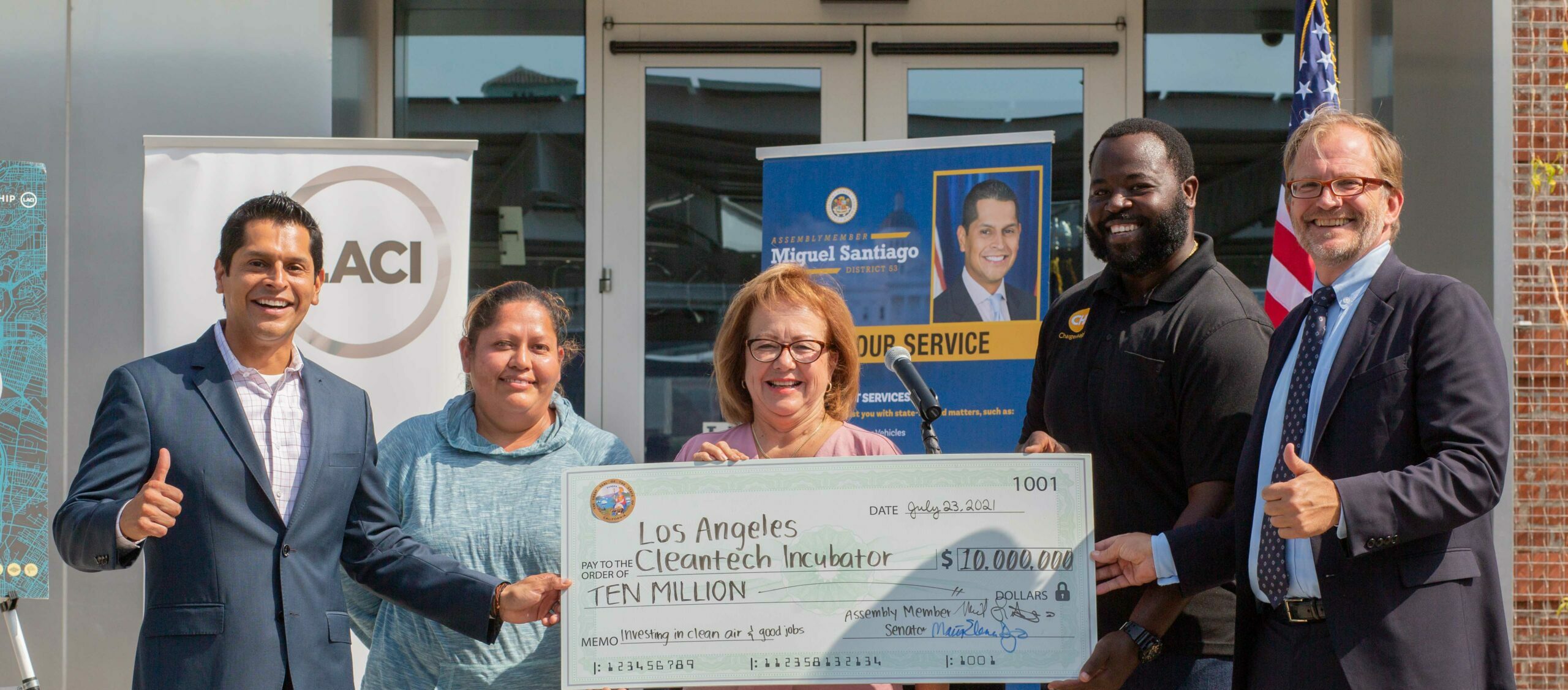
 “Our communities deserve to breathe clean air, work good paying jobs, and thrive in tomorrow’s economy,” said Santiago. “It took a pandemic for my neighbors to breathe clean air. $10 million represents an investment in our children’s future, in our communities’ prosperity, and in the health of our neighbors and friends. I’m so proud to have the Los Angeles Cleantech Incubator in my district, as they are making leaps and bounds to ensure our communities are included in the green economy and that we move away from fossil fuels.”
“Our communities deserve to breathe clean air, work good paying jobs, and thrive in tomorrow’s economy,” said Santiago. “It took a pandemic for my neighbors to breathe clean air. $10 million represents an investment in our children’s future, in our communities’ prosperity, and in the health of our neighbors and friends. I’m so proud to have the Los Angeles Cleantech Incubator in my district, as they are making leaps and bounds to ensure our communities are included in the green economy and that we move away from fossil fuels.”